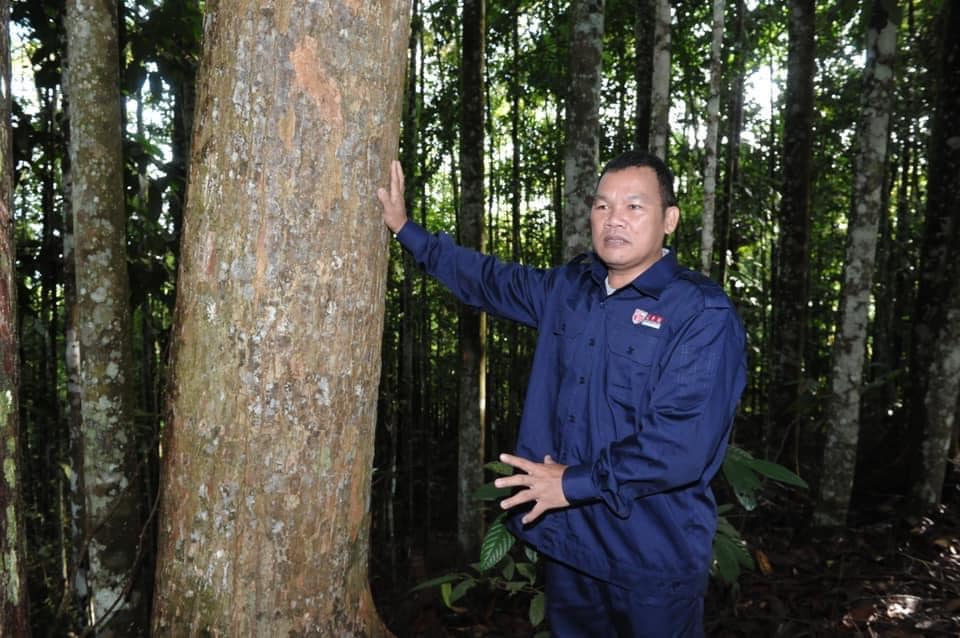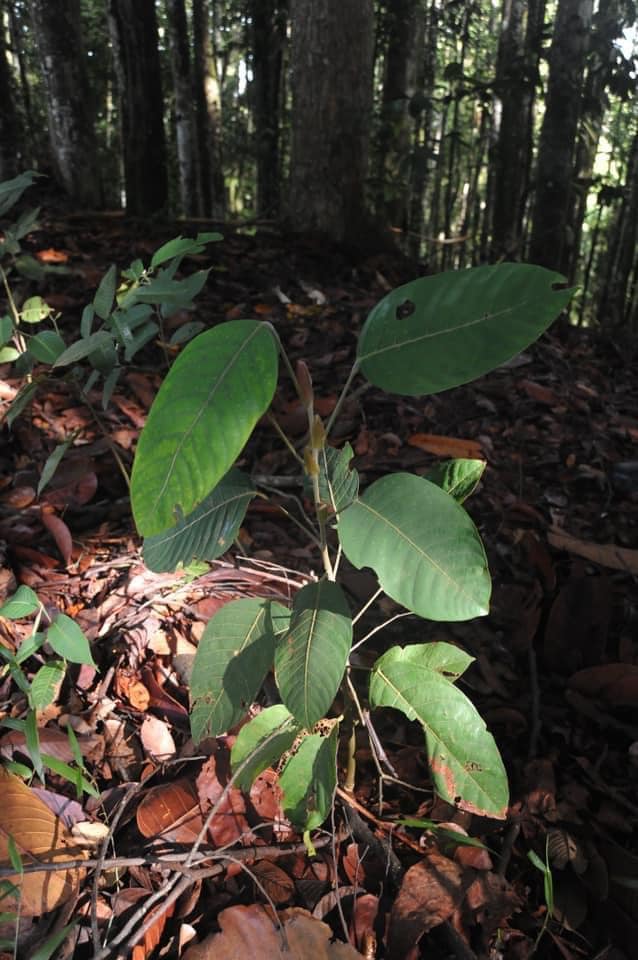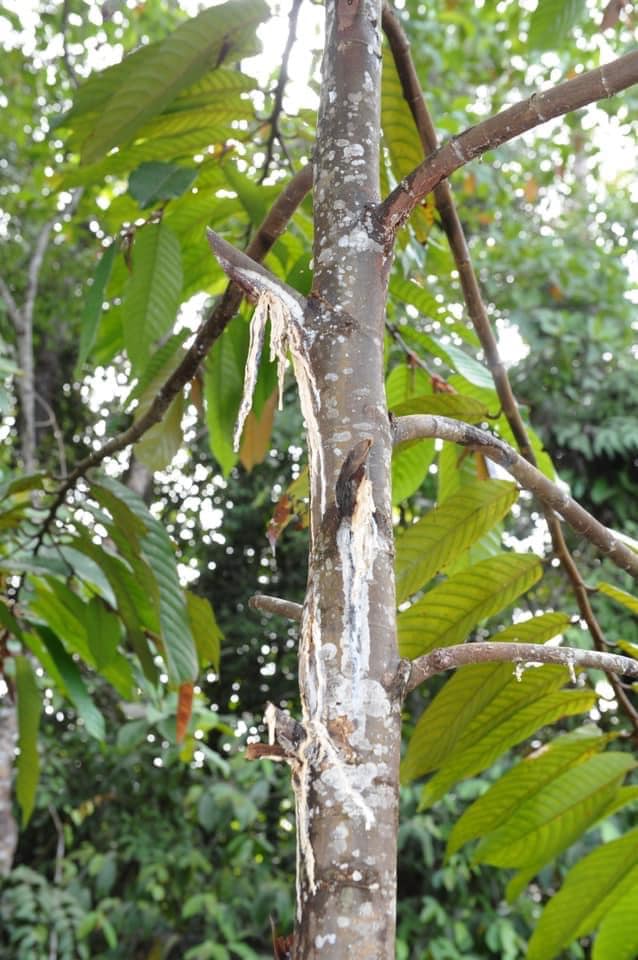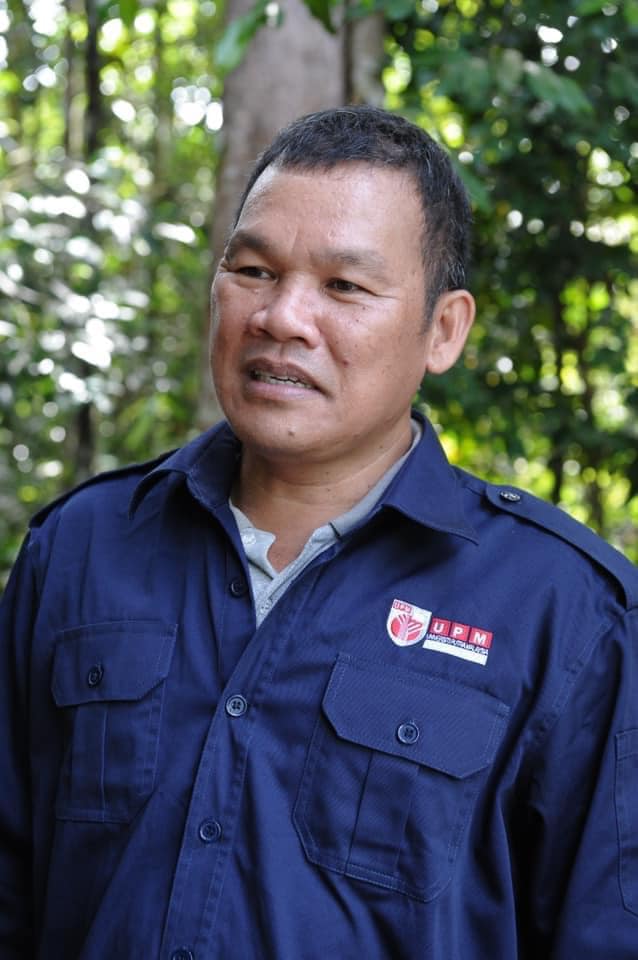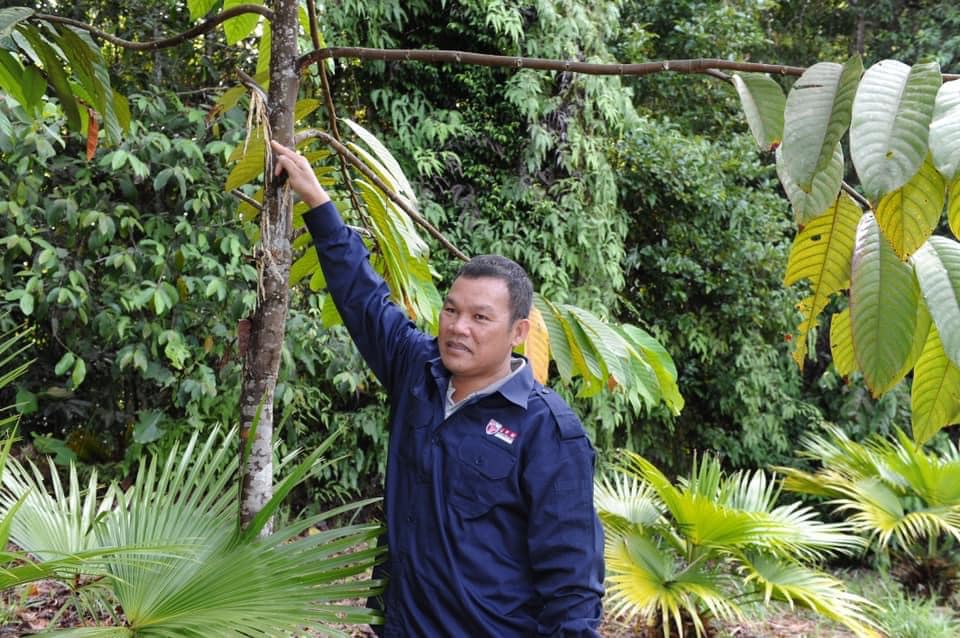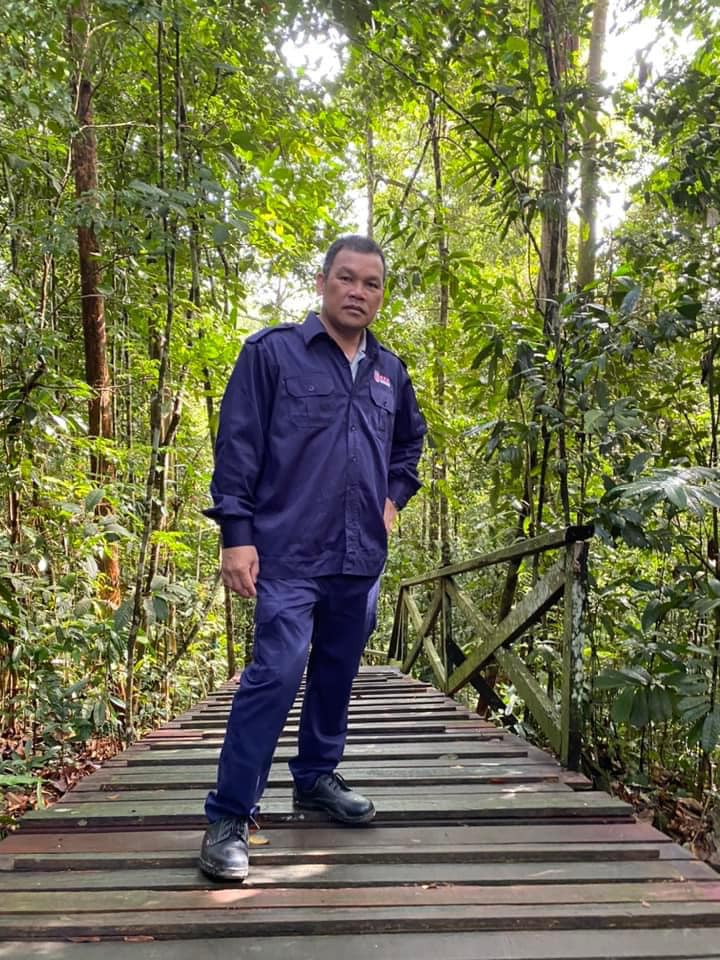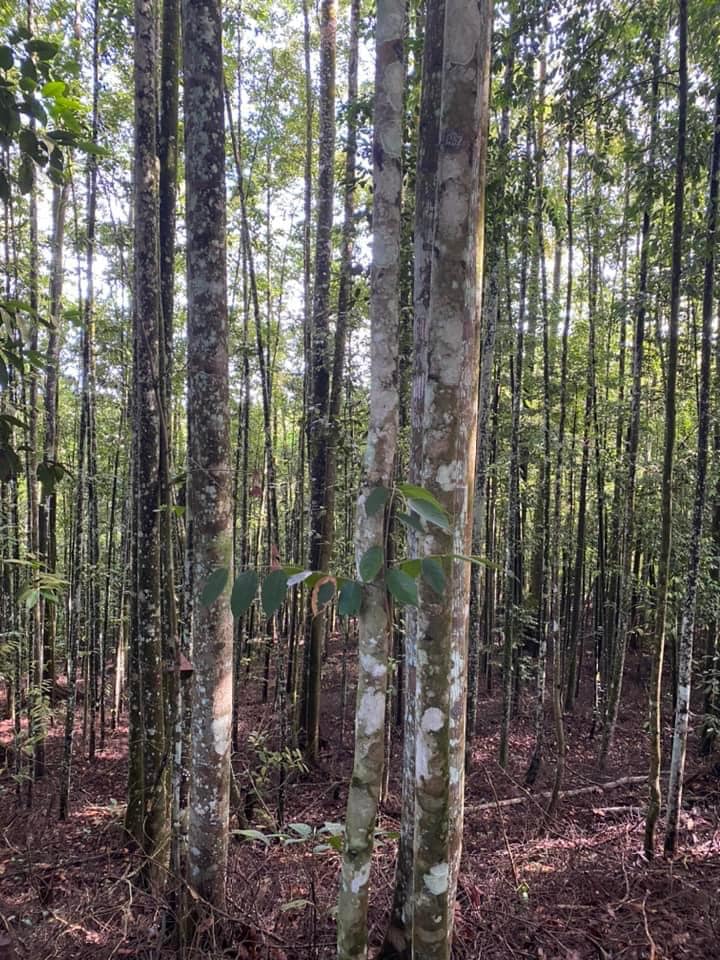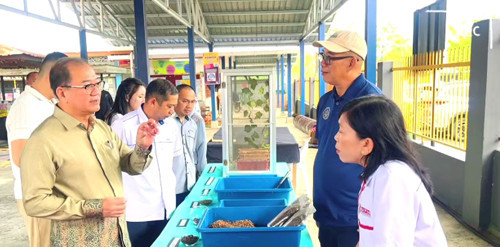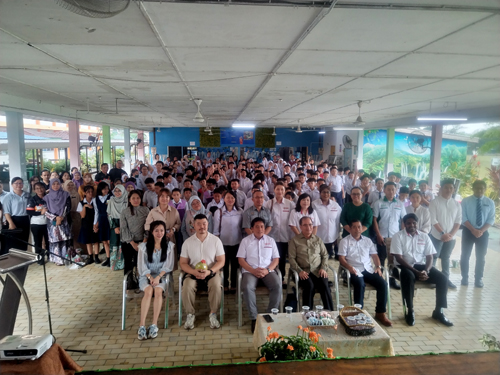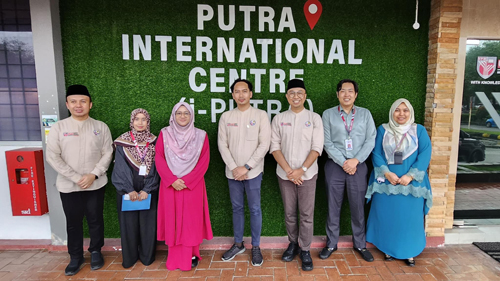The planting of Engkabang trees at Universiti Putra Malaysia Bintulu Campus (UPMKB) is an initiative to address the problem of this extinct tree species.
Most of the Engkabang species are valuable to the people of the Borneo archipelago and have been listed as endangered species status by the International Union for Conservation of Nature (IUCN) as well as the Sarawak Plant Red List.
According to Philip Lepun, Senior Lecturer of Forestry Science Department of the Faculty of Agricultural Science and Forestry UPMKB, this is because the Engkabang tree has oil derived from a tree called Engkabang or Engkabang Jantong (Malay/Iban) with its scientific name Shorea macrophylla (De Vriese) P.S.Ashton and Engkabang Langgai Bukit or Kawang Pinang (Malay/Iban) with its scientific name Shorea Pinanga Scheff.
Engkabang oil is also known as Sarawak Butter (Sarawak Butter) which is derived from five other species. However, it becomes a problem when the tree does not bear fruit simultaneously and so much that it affects the production of oil produced a little because the natural forest has been cut down or destroyed due to the development process.
&ldquo"The Engkabang Jantong tree is the most suitable species to obtain Engkabang oil and will grow or live by the river. However, when there is flooding or soil/slush due to soil erosion, it causes the Engkabang Jantong tree to die as it is very sensitive to ecological changes.
“The mature Engkabang tree will only bear fruit every four to five years depending on the annual weather. This is the main reason why the people in Borneo do not sell this oil regularly. The selling price of this oil shows that the revenue from the Engkabang oil is very valuable, “he said.
He said, because of the quality and value of the commercial of the tree, the restoration of the forest needs to be properly managed so that the tree does not become extinct and continues to be recognized by everyone in Borneo.
Meanwhile, the Dean of the Faculty of Agricultural Science and Forestry UPMKB, Dr Zamri Rosli said, UPMKB took this initiative to conserve the Engkabang trees by collaborating in the flora conservation program starting from 1991 with Mitsubishi Corporation.
“"It is an effort of UPMKB as a research centre in the field of forestry especially by the Department of Forestry Science, Faculty of Agricultural Science and Forestry by enriching it with trees and planting important tree species in order to enhance the understanding of forestry knowledge and provide resources to forestry research in the future.
Thus, he said, half a million tree seedlings have been planted from 120 native species from the Sarawak forest including the Shorea macrophylla species.
“Only UPMKB focuses on planting Engkabang trees around Bintulu, Sibu and Miri regions. The forest area for the UPM-Mitsubishi Corporation Forest Restoration project is 45ha,” he said.
Date of Input: 03/11/2022 |
Updated: 03/11/2022 | lanz
MEDIA SHARING











